News
European countries and non-profit groups pledge nearly €630 million in new funding for the WHO

European countries and a handful of non-profit groups have committed $700 million (€627.4 million) to fund the World Health Organization (WHO). The new funding, on top of the $300 million (€268.9 million) already committed by the European Union and African Union, will be used by the WHO in its attempt to prevent 40 million preventable deaths from diseases over the next four years.
The WHO is funded through a combination of member state fees, based on countries’ gross domestic products (GDP), and voluntary contributions from governments, non-profits, and other groups. Most of the money is made available for specific global health programmes. However, this approach, along with the fact that the funding timelines are typically short-term, makes it hard for the WHO to keep staff, start long-term projects, or quickly respond to health emergencies like the COVID-19 pandemic.
In 2022, countries agreed to increase their membership contributions so that by 2030, they would cover 50% of the WHO’s core budget, up from 13% in 2022. This to ensure it has a “predictable, flexible, and resilient” flow of money to run its programmes.
“The WHO’s work benefits us all. What it needs for this work is sustainable financing that gives it the certainty to plan ahead and the flexibility to react,” German chancellor Olaf Scholz said at the World Health Summit in Berlin, where the funding was announced.
Germany (€358.5 million), Norway (€83.9 million), Luxembourg (€46.6 million), Denmark (€36.7 million) and Ireland (€29.3 million) made the biggest new commitments to WHO funding. In addition to the government commitments, global health non-profit groups like Wellcome, Resolve to Save Lives, the World Diabetes Foundation, and the Institute for Philanthropy said they would give more than $130 million (€116.5 million) altogether.
European Commission President Ursula von der Leyen has called the WHO the world’s “collective first line of defence against health crises and inequalities,” and highlighted the EU’s €250 million investment – announced earlier this year – to help the WHO tackle global health issues such as mpox, cholera, and the Marburg virus, which is flaring up in Rwanda.
She said the EU will also spend more than €75 million to support the WHO’s mRNA technology hub in South Africa, which aims to boost the vaccine development capacity of low- and middle-income countries but faces logistical and technical hurdles.
Stay tuned for news on significant funding initiatives.
Last news
-
 18 November 2025
18 November 2025Council and Parliament reach agreement on the EU budget for 2026
-
 14 November 2025
14 November 2025Commission announces over €5 billion in funding for Erasmus+ 2026
-







